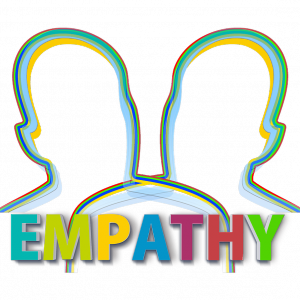In Chapter Three of my upcoming book Influence: What’s the Missing Piece?, we discuss the organizational culture and the landscape for high return on investment. In today’s article, I want to dig deeper into one facet of something covered in that chapter.
One of the key aspects of a healthy organizational culture is that people need to foster strong relationships at work. Let’s call this the connection factor.
People aren’t widgets and never will be. We have an emotional component about us and a need for relationships in every area of our life. Even in the basement of the most technical/research-based organizations, with people that often aren’t very social or extroverted by nature, you’ll find them forming relationships. As one of my friends who works in one of those environments jokes, “Nerds unite … over Star Trek or whatever, but we unite.”
Interestingly, research is showing that we are less apt to have friends at work than we were in the past. Given the vast amount of time and proximity to our coworkers, it is surprising that we have less work friendships than in the past.
In the mid-eighties, about half of Americans said they had a close friend at work; presently, this is true for less than 30 percent.
A New York Times article by Adam Grant reports:
Once, work was a major source of friendships. We took our families to company picnics and invited our colleagues over for dinner. Now, work is a more transactional place. We go to the office to be efficient, not to form bonds. We have plenty of productive conversations but fewer meaningful relationships.
This is also a predominantly American centered phenomenon. In a comparative survey, almost 50 percent of workers in India had gone on a vacation with a co-worker at some point in their life. In America, it is only six percent. In Poland, 76 percent reported strong office friendships in contrast to 30 percent in America.
Why the Uniqueness?
Here are three key reasons:
1. Frequent Transition
Some of this is due to the fact that we “job hop” much more than in the past. Many of our grandparents or parents, depending on your age, went to jobs where they had worked for 30+ years. Now the average length of time a person (age 25 to 34) remains at a job is 3.2 years. With such transience, no wonder we don’t heavily invest in relationships (source). In many minds, it’s here today, gone tomorrow.
2. More Connection to the Outside World During Work Hours
In addition, the method of our work and connection to the outside world during work has changed. Social media, texting, and other avenues have made it much easier to stay connected to our outside-of-work friends even while we are at work. Even if work culture has expressed displeasure in using social media on work time, people still do it – post on social media with their phone under their desk, , taking a bathroom break or short coffee break to text a friend, or other creative means to connect to friends outside of work.
3. New Means of Working
Finally, another reason for the disconnect is our new means of working. Remote working, computer-based working and interfacing with team members through video conferencing rather than face-to-face with our peers at work, has fundamentally changed the work environment. Our predecessors had no screens, emails, inter-office chat apps, etc. to use to communicate. At a minimum, it was via phone where you heard the other person’s voice. More often, it was through an in-person meeting.
Changing Attitudes
Because of these three reasons we have come to view the workplace as more of a transactional environment. We tend to go to work to earn money, so we can do our “real life” outside of work. This includes hanging out with friends, working on hobbies, or merely spending time in leisure.
The New York Times article continues, “When we see our jobs primarily as a means to leisure, it’s easy to convince ourselves that efficiency should reign supreme at work, so we have time for friendships outside work.”
We often consciously or sub-consciously put our “work friends” on a tier below our “real friends.”
To Our Detriment
We were designed to live in connected relationships, even in the workplace. It is my opinion that this current dearth of workplace friendships only hurts us.
A friend at work can help you decipher the inner workings of your organization, be a sounding board and provide unofficial but honest feedback on your performance. Work friendships make the job more enjoyable. And old adage is “When all things are equal, people prefer doing business with friends. Even when all things are not equal, people still prefer doing business with friends.”
Why You Should Care as an Organizational Leader
A recent study shows that “employee’s perceptions of friendship opportunities in the workplace have direct effects on job involvement and job satisfaction, as well as indirect effects on organizational commitment and intention to turnover.”
Simply put, a more connected environment is a more successful environment.
I am not advocating that all your deepest friendships need to occur within the work environment. What I am saying is that the current trends to transactional participation and self-isolation is making us less satisfied, less emotionally healthy and less influential.
In part two of this article, we’ll take a look at practical ways to build healthy friendships at work and a connected culture, which in turn, helps you to become a more effective leader and influencer.





